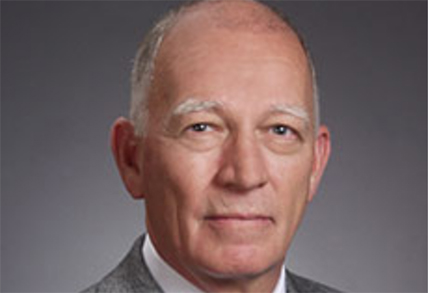
Bill McCallum
The Australian forestry market remains attractive to international investors despite a few headwinds, according to Hancock’s Australasian chief, Bill McCallum, who also signalled that an integrated timberland/farmland investment strategy expanded the opportunities for investors. Source: Philip Hopkins for Timberbiz
“In spite of the headwinds, there is plenty of capital in the queue,” said Mr McCallum, the managing director, Australasia, for Hancock Timber Resource Group, Australia/New Zealand, in an address to the DANA forestry conference in Brisbane this week.
‘’The fundamentals are good, but there are some issues of concern. They are not upsetting, but require some reflection,” he said.
These included Australasia’s high exposure to China, rising costs, changing weather patterns – “I’m not sure about climate change, but our weather is changing” – and trade disputes, mainly between the US and China.
Mr McCallum said China’s real GDP annual growth had had ups and downs, but since 2017, a steady gradual decline had set in.
“It’s not a crisis; we are still talking about 6% growth off a pretty big base,” he said, but the outlook to 2030 was more subdued. “The heady days are gone.”
The concern lay in the fact that China was Australia’s biggest trading partner, while Australia and China were NZ’s two biggest trading partners.
Mr McCallum said the cost of production and market access were increasing, and shipping/transport costs were going up. “We estimate low sulphur requirements, and fumigation changes in NZ, will add $US7 per cubic metre to our shipping in the next 12 months,” he said. This would be added to the average cost of $US25 over the past two or three years.
“Labour availability and costs are increasing for all sectors; environmental compliance costs are increasing. Overall costs in the past 10 years have increased significantly higher than our revenue has increased,” he said.
“We are not at the edge of the cliff around the corner, but the two curves are converging. There’s going to be a problem at some stage.”
The US-China trade dispute was complex, the signals sometimes contradictory.
“The cease fire in trade is not an armistice, not a peace treaty. How it ends up, I’m not sure; it’s all about IP. The outcomes are unpredictable, creating uncertainty,” he said.
However, Mr McCallum said despite those minor headwinds, “we are not heading into a gale”.
Timberland investments had been “rock solid” despite some fluctuations. The company had operated 160,000 productive hectares of plantations in Victoria – “we celebrated our 20th anniversary in the past two months” – with a sustainable annual harvest of 3.3 million tonnes.
In Queensland, after a big acquisition eight years ago, there was 203,000 ha and an annual harvest of 2.4m tonnes: and in NZ, entered 15 years ago, there was 180,00 ha of productive forest and a 5.5m tonne annual harvest. The company also had agricultural investments in Australia.





